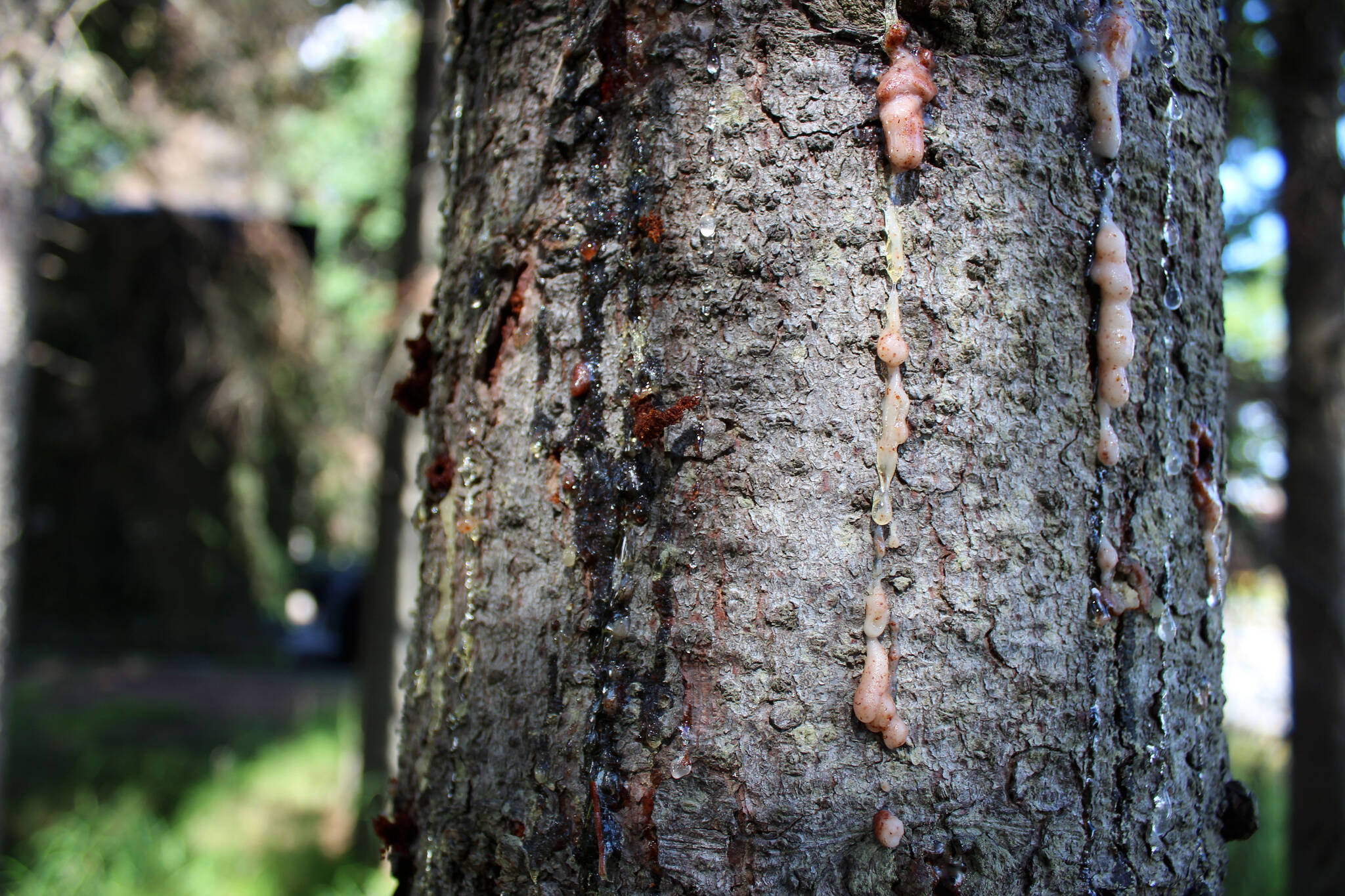The entrance to the Russian River Campground closed this week to allow for a large-scale removal of trees infested by spruce bark beetles, the Chugach National Forest announced Tuesday. The agency cited public safety concerns around the work area, where tree fallers and heavy equipment will be used, including at the campground entrance, parking lots and surrounding areas.
The agency wrote in its Tuesday release that an initial closure will be in place east of the entrance road and will expand as crews approach parking areas. In all, 58 acres of land will be treated at the entrance of the Russian River Campground, with work expended to last through late April of this year.
Similar tree removal work is also underway at Quartz Creek Campground, where tree fallers and heavy equipment will be in use at the campground, the boat launch and on the east side of Quartz Creek near Quartz Creek and Williams Roads. In all, 54 acres will be treated in the area with work expected to continue through late April.
The closure is in addition to an upcoming yearlong closure of the Russian River Campground scheduled for this summer. The Chugach National Forest announced late last year that the area will close from Aug. 1, 2022, to June 1, 2023, for construction to rebuild part of a road and reinforce parts of a hillside along the Kenai River.
Improvements will focus on widening and rebuilding Russian River Campground Road, which the Forest Service said will make it safer for cars, recreational vehicles and pedestrians. In addition to expanding the existing shoulder of the road, a new guardrail will be put in.
The closure announced Tuesday comes as the Kenai Peninsula Borough’s Land Management Department is working to promote a new program that would use the latest spruce bark beetle outbreak to expand timber harvesting and craft a forest management plan for the borough. That plan, first presented to the borough during the borough assembly’s Feb. 15 meeting by Land Management Agent Dakota Truitt, would focus both on the removal of infected trees from borough land and on reforestation efforts.
As of 2020, more than 150,000 acres of forest had been impacted by spruce bark beetle infection on the Kenai Peninsula, including about 21,000 acres of forested land between Cooper Landing, Kenai and Soldotna, Truitt told the assembly last month. However, 2021 data indicate that those numbers have grown to almost 200,000 acres of forest land on the peninsula and 1.4 million acres across all of Southcentral Alaska.
Residents can take an active role in reducing spruce bark beetle populations by knowing how to treat and store their spruce firewood. The Alaska Division of Forestry offers guidance on their website about the best conditions for wood at each stage of infection.
A common indicator of beetle presence is boring dust, similar to sawdust, which collects at the base of the infected tree and in bark crevices. The dust is pushed out of holes in the bark where beetles enter and clear tunnels under the bark. Pitch tubes, or red globs on the surface of the tree bark, are seen where the tree has tried to push the beetles out.
The Russian River Campground is located off the Sterling Highway near Cooper Landing. More information on the upcoming closures can be found at fs.usda.gov/chugach.
Reach reporter Ashlyn O’Hara at ashlyn.ohara@peninsulaclarion.com.

